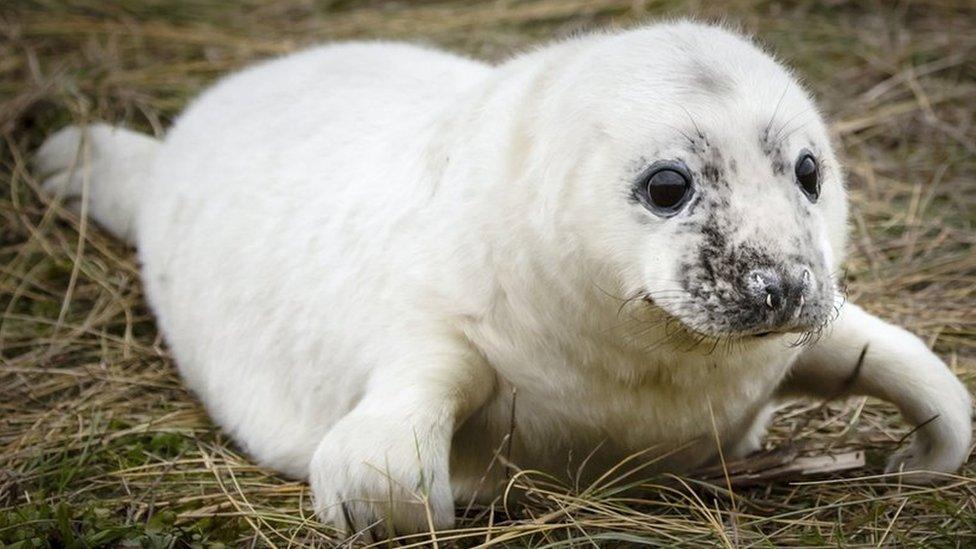Norfolk colony of grey seals welcomes first pups of season
- Published
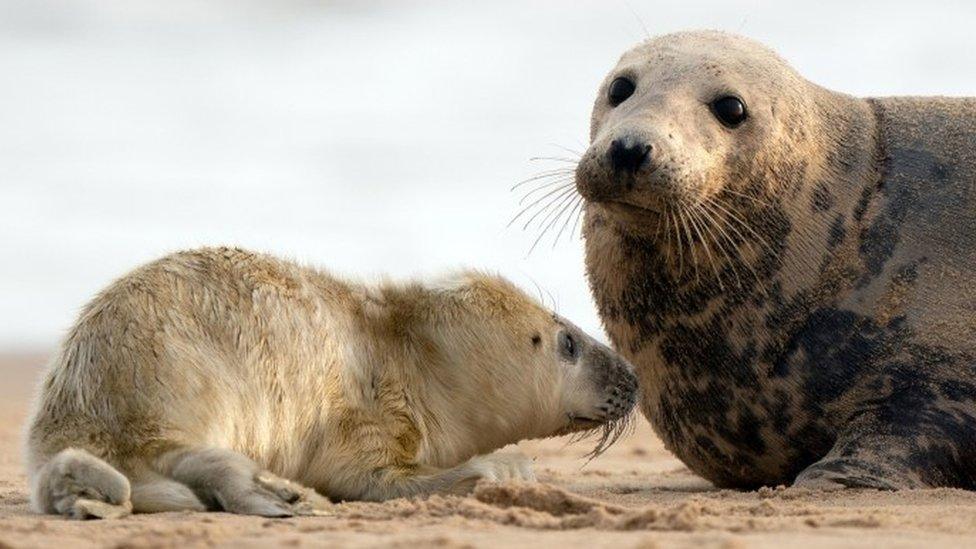
The pupping season begins gradually but "really, really goes to town" by the second and third week of November, the Friends of Horsey Seals said
The first grey seal pups of the season have been born to a thriving colony, with wardens helping to keep them safe.
Horsey on the Norfolk coast welcomed an estimated 2,500 young last winter, with a year-on-year increase of about 10%.
The season runs until late January, with roped-off designated viewing areas to keep visitors at a distance.
Friends of Horsey Seals, external warned that if people get too close to the pups it might "cause the mother to abandon her pup, leaving it to starve".
Chairman Peter Ansell said the season began slowly but by mid-November they "start popping out all over the place" with hundreds of pups on the sand.
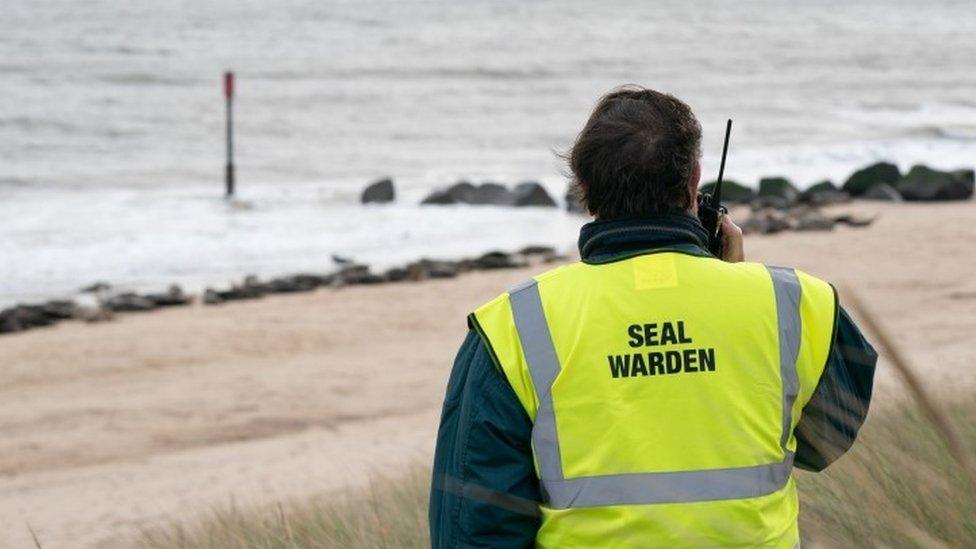
Seal wardens monitor numbers of expectant mothers and young, while keeping an eye out for visitors wandering on to the sand
The group conducts a seal count, but could not complete it last season due to Covid-19 restrictions, Mr Ansell said.
"When we stopped the count we were at well over 1,500," he said.
"We were unable to go down there and complete the count but going on past history you could safely say there would be about 2,500 born by the end of the season last year, no problem at all.
"We expect probably to exceed that total again this year.
"It seems to go year on year the total increases by about 10%."
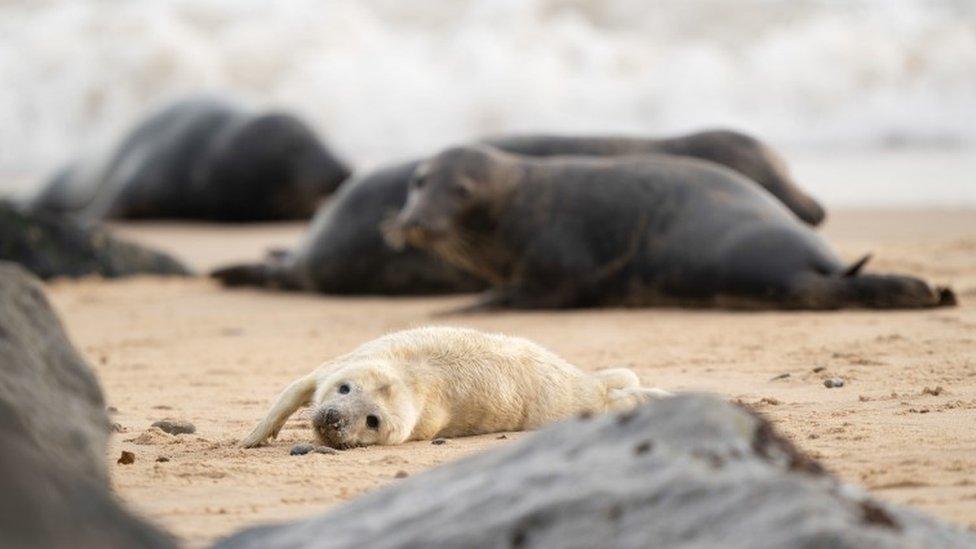
This youngster will be joined by hundreds of other pups in the coming weeks
He said the majority of the marine mammals on the beach are currently adults, with at least two healthy pups born this week.
"It doesn't really get into its full swing until the second or third week of November, and from then, for the next fortnight it really, really goes to town," said Mr Ansell.
"That's the time we pray we don't get high tides that wash them away, as happened last year when we lost about 50 or 60."
He said volunteer wardens are on duty, with signs and viewing areas marking out a safe distance from the colony.
Mr Ansell said that if people keep to the viewing areas "we can look forward to another happy and successful season".
In September, the group said it was "really stupid" that people were ignoring warning signs and getting too close to pregnant seals, which could cause them to miscarry.

Find BBC News: East of England on Facebook, external, Instagram, external and Twitter, external. If you have a story suggestion email eastofenglandnews@bbc.co.uk, external
- Published11 July 2021
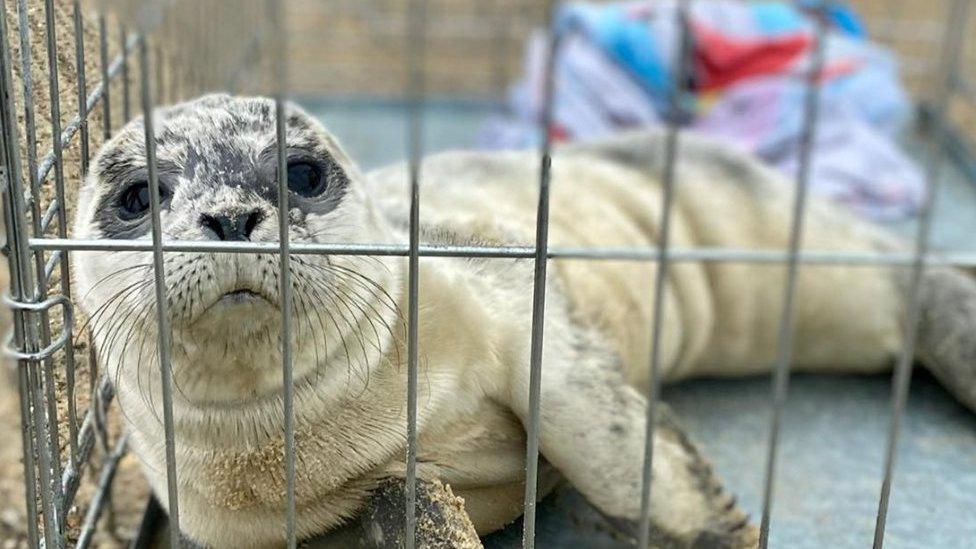
- Published15 June 2021
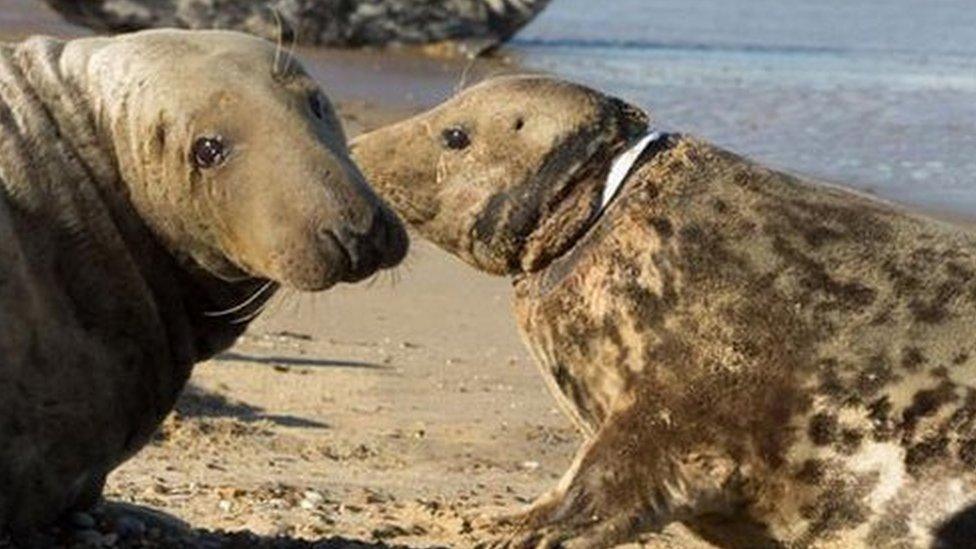
- Published24 March 2021
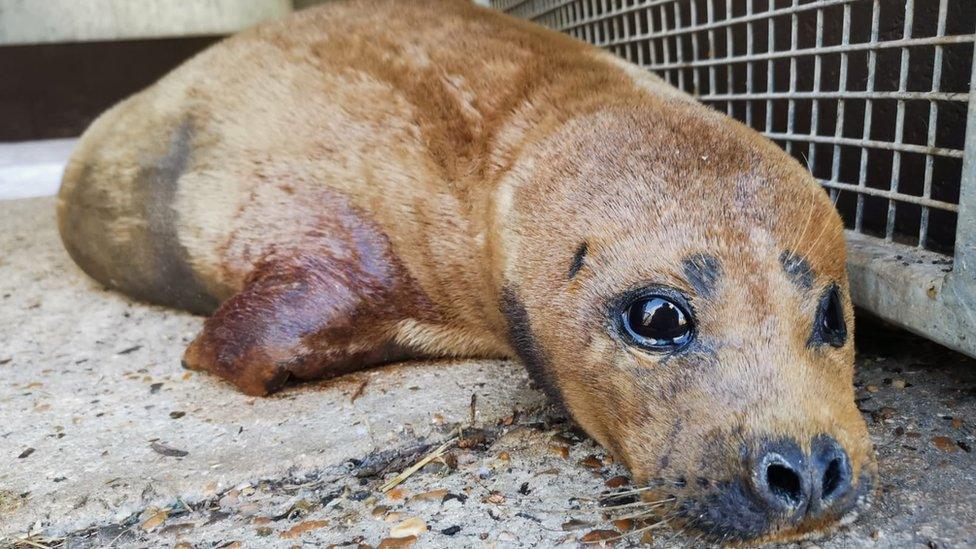
- Published13 January 2021
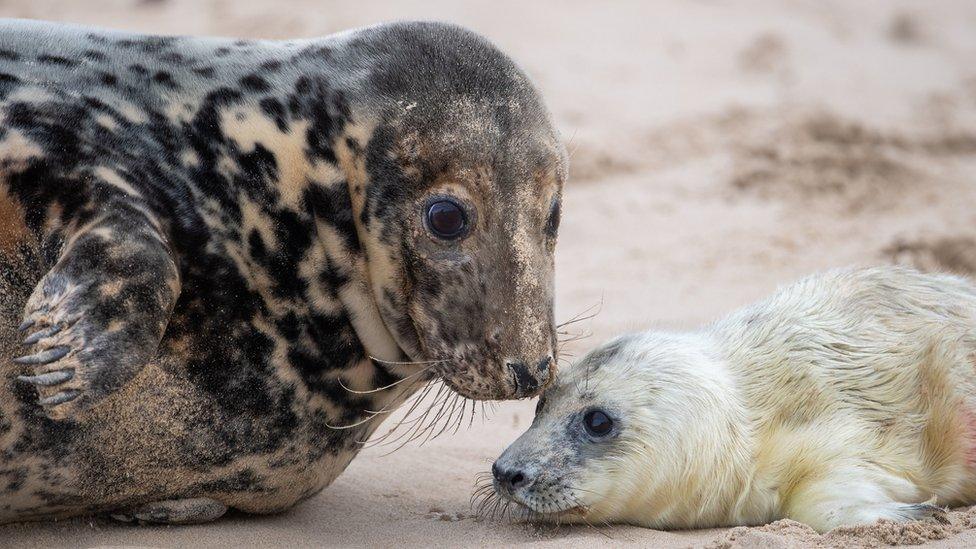
- Published8 January 2021

- Published28 February 2020
